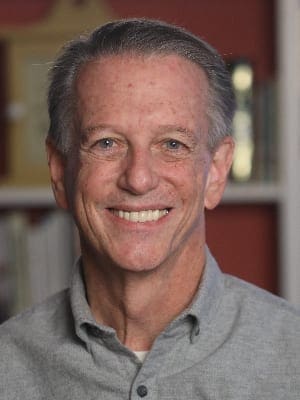Amid all the game playing in Washington and in Frankfort, Ky., perhaps there is a lesson to be learned from Kentucky’s other religion: basketball.
Recently, the Courier-Journal sports section questioned whether University of Louisville center Gorgui Dieng is overly fatigued from playing too many minutes.
Writer Tim Sullivan said Dieng’s “instincts are invariably selfless.” Quoting Dieng, “It’s not about me, it’s about the team.” Sullivan follows with “there’s not a rolled eye in the house” because apparently that’s how Gorgui rolls.
Here’s a lesson for all sides of the political and religious aisles. Our highest calling is to put the good of the whole – our team, community, state, nation, humanity – above the political preferences or proclivities of me or mine. There are larger issues for the common good than whether my demands are met.
Let’s not kid ourselves. This noble ideal is far more difficult to put into play than we care to admit. Yielding one’s agenda in order to achieve that which is best for everyone is a rarity. Here’s why.
We each see the world through our own eyes and make assumptions about what is right, good and fair based on our particular perspective. We then team up with those who concur with us in order to form a larger, louder voice.
We reinforce our point of view and demonize those who see life differently. We then convince ourselves that our views are so unequivocal that any form of compromise or consideration of other views would be tantamount to betraying the cause.
I admire people with deep convictions. I appreciate the effort required to come to firm conclusions. I understand the energy expended in taking a firm stand.
But there is a subtle, profound difference between conviction and contrariness, between certitude and selfishness.
Significant issues for the common good are on the table presently in the national and state capitals.
â— How will we apply the Second Amendment in the face of an epidemic of gun violence?
â— How will we secure the welfare of all people in the face of budget deficits and unsure economies?
â— How can we provide fuel for our cities and countrysides without destroying them in the process?
Some issues require a winner and a loser for the ultimate common good. For example, eliminating slavery was non-negotiable.
Others issues require compromise, where both sides give more than they prefer and receive less than they hoped.
Still others issues of profound, competing understandings invite us to the hardest work of politics: dialogue.
Dialogue suspends the winner-loser, “my-way-or-the-highway” mentality and steps into the mindset of Gorgui Dieng by asking: “What would be best for all of us together?”
Dialogue requires a vulnerability rarely seen in the halls of power. It asks: What is the highest good we all aspire to collectively? And similarly: What is the worst evil we all want to avoid?
Dialogue requires listening rather than walking away, and communicating with each other rather than offering adversarial sound bites for the media.
Most lobbyists hate dialogue. So what would motivate us to dialogue?
There’s not enough maturity in the political system to expect politicians to propose this option. Perhaps it will require some outside stimulation.
What if the recent asteroid near-miss awakened us to the realization that, despite our differing vantage points, we actually share the same small island?
Or perhaps it takes a shared experience like the one in the recent University of Kentucky-Florida game, when Nerlens Noel had a season-ending leg injury.
The Florida arena, raucous with rivalry, suddenly fell silent in solidarity with the injured Wildcat.
In that context, it was right and good for competition to resume, but in a different arena this might have been the moment for combatants to reassess whether there might be a more excellent way.
I write this as a recovering combatant. “Hello. My name is Joe and I’m a fighter.” I fall off the wagon with some regularity.
A few weeks ago, I spoke in Frankfort, Ky., on behalf of HB 265 to limit gun violence in Kentucky.
Numerous people around the Commonwealth disagreed so vehemently that they sought out my e-mail address to express their views.
In a few instances, I invited the writer to help me understand the reasons and rationale behind their point of view. They did so with less vitriol and more content than their first note.
The exchange became a dialogue, and as it continued the space between us shrank and the possibility of a new idea emerged – not a compromise, but a new idea – to help us achieve what might become a common goal.
Maybe that’s how the game should be played.
Joe Phelps is pastor of Highland Baptist Church in Louisville, Ky. A version of this column appeared previously in The Louisville Courier-Journal.
A minister in Louisville, Kentucky, for 21 years as pastor of Highland Baptist Church, Phelps is now Justice Coordinator for Earth and Spirit Center. He leads, along with Kevin Cosby, EmpowerWest, a black-white clergy coalition calling for recognition, repentance, and repair of injustices to black Louisvillians.

